The dark side of Uganda's gorilla tourism industry
- Published
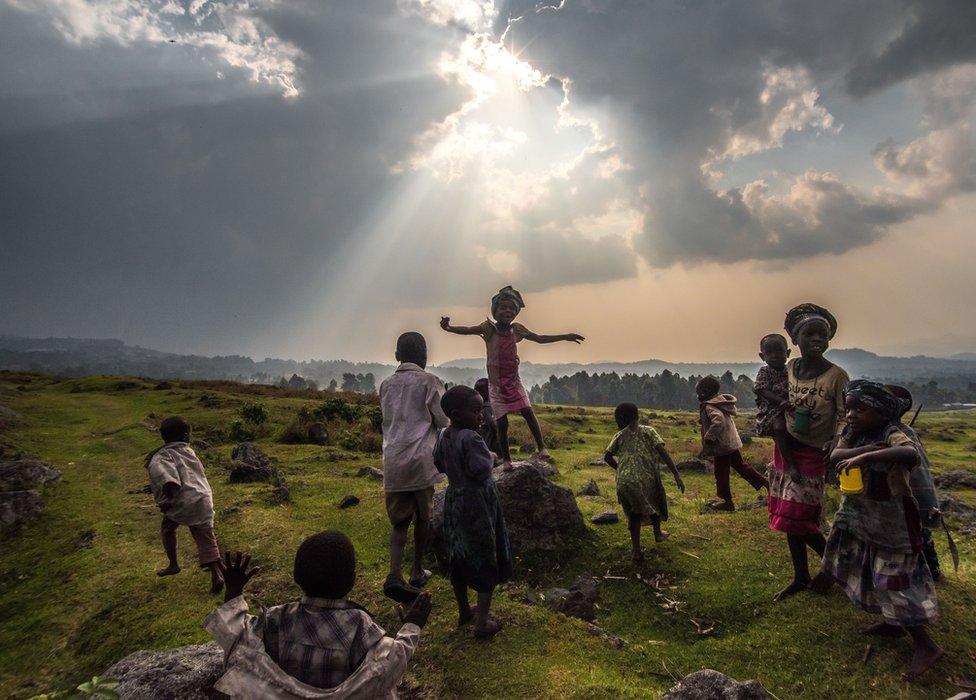
Two decades ago Batwa pygmies were thrown out of their native forests in Uganda to make way for the country's mountain gorilla tourism. Tommy Trenchard and Aurelie Marrier d'Unienville went to Rukeri in Uganda find out what happened next.
On a bleak volcanic plain at the foot of Mount Muhabura in the south-western corner of Uganda several ramshackle huts of sticks and grass lie scattered among the boulders.
They look like they they are designed to hold livestock or farm machinery, but these are the homes of the Batwa. They have lived here in abject poverty since being expelled from the forests they lived in as part of a much lauded conservation programme in the 1990s.
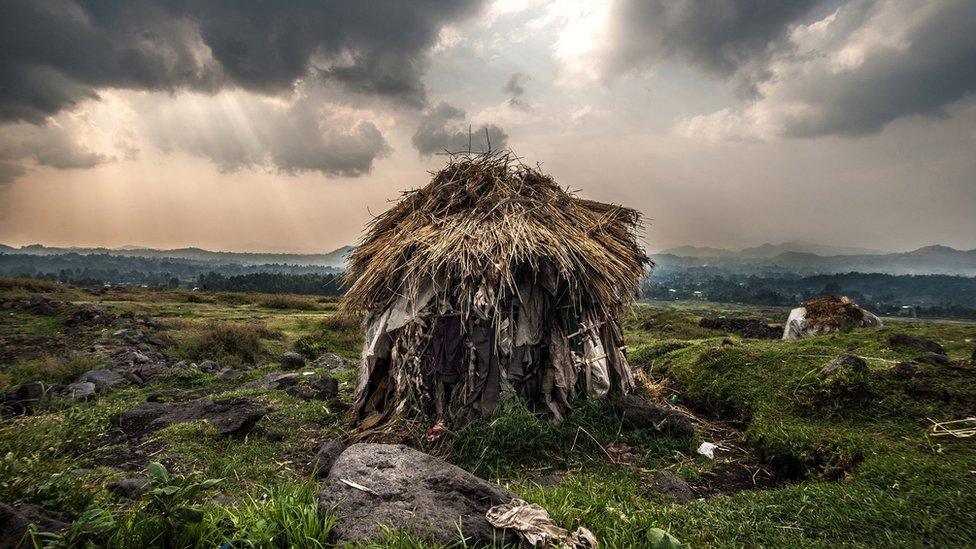
A Batwa home in Rukeri, Uganda, where many now live after being evicted from nearby forests
Since the days of Idi Amin in the 1970s, when Uganda's wildlife was hunted down and slaughtered in great numbers, the country has earned a reputation as a conservation success story. Elephant numbers have sky-rocketed and the population of wild mountain gorillas has been steadily increasing.
Dancing for tourists
Uganda's national parks now attract tourists from around the world and provide a significant boost to the country's economy.
Yet for the country's estimated 3,000 to 7,000 Batwa it has come at a great cost. The evicted Batwa were never compensated with land by the government and most now live as squatters or vassals to local landowners.
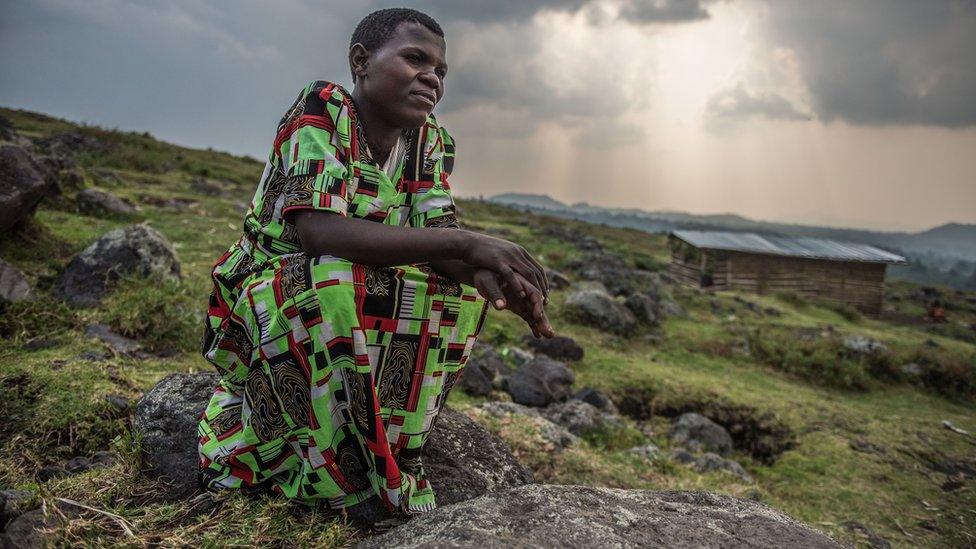
Annette Ntakirutimana was doused in kerosene and set alight by a local landowner who caught her foraging for food in his garden
Anette Ntakirutimana, 20, makes her meagre living working as a farm hand, and has to choose between food and money for her payment.
If she chooses money, she gets less than $0.90 (£0.70) for a full day's labour, barely enough to keep her and her two young children alive. If she chooses food, then there is no chance of ever saving enough to change the way she is living.
Occasionally she makes a little extra money by dressing in fake animal skins and dancing for tourists. She finds it demeaning, but says she feels unable to pass up the offer of work.
'Seen as inferior'
According to Penninah Zaninka, coordinator for the United Organisation for Batwa Development in Uganda (UOBDU), even though attitudes towards the Batwa have softened a little in recent years, being landless has left them extremely vulnerable.
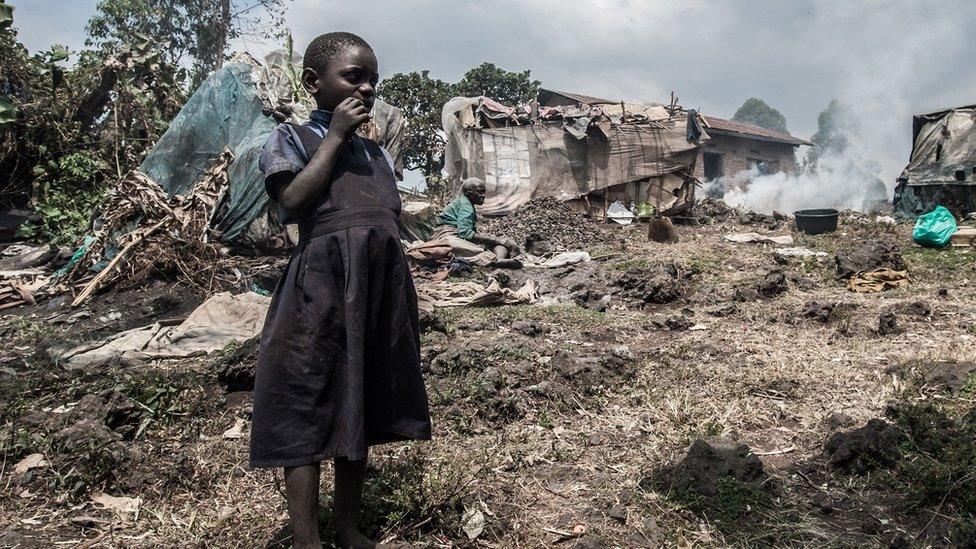
Some Batwa live on small plots of church-donated land
"They're completely dependent now," she says, sitting at her desk at UOBDU's headquarters in the nearby town of Kisoro.
"You can't have a voice if you don't have land. They [the town's non-Batwa residents] see them as inferior; they abuse them and mock them. In some places you'll see the [Batwa] shaking with fear when people talk to them."
Ms Ntakirutimana, like most of the Batwa, has faced extreme discrimination. At school she was raped, then, two years ago, she almost died when a local landowner doused her in kerosene and set her alight after he caught her foraging for food in his garden.
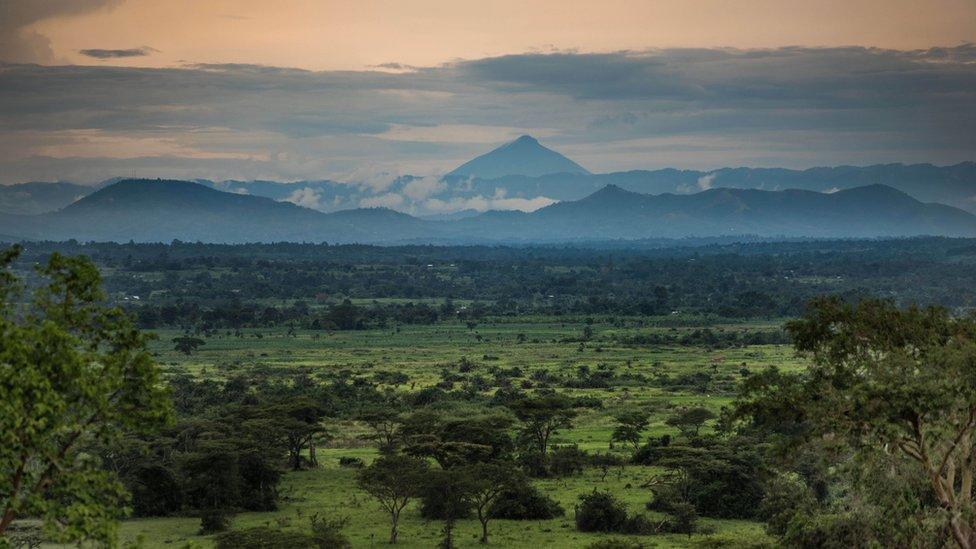
Mount Muhabura is one of three of the Virunga Mountains in Uganda which are home to a thriving tourist industry
UOBDU has been trying in recent years to get more Batwa through school in the hope that it will enable them to break out of the cycle of poverty and abuse, though it has been an uphill battle.
"How can you study when you have no food?" asks Ms Zaninka. "It was the evictions that caused all of this. Taking them away from their ancestral land without any planning was wrong."
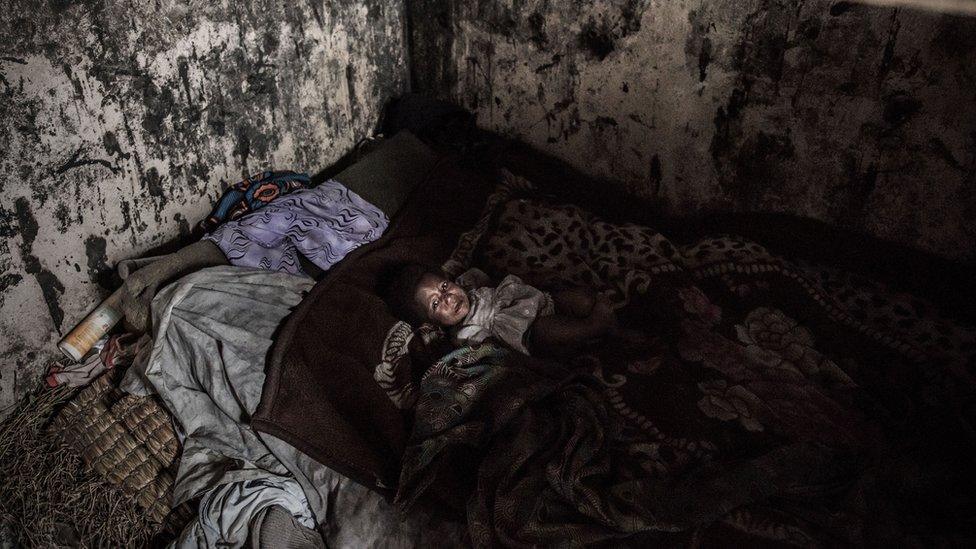
Mortality rates among Batwa children are extremely high
To the Batwa the forest was everything. It provided them with meat, honey and fruits to eat, animal skins to keep them warm, herbs to treat their illnesses and, they believe, spirits of their ancestors to protect them.
Jossy Muhangi, spokesman for the Uganda Wildlife Authority (UWA), says that the pygmies' presence in the forest was damaging to the gorillas and that their eviction has played a part in significant increases in gorilla populations.
"The Batwa were always friends of the gorillas," he says. "They did not eat them, but their snares and traps were dangerous. And they could spread respiratory diseases".
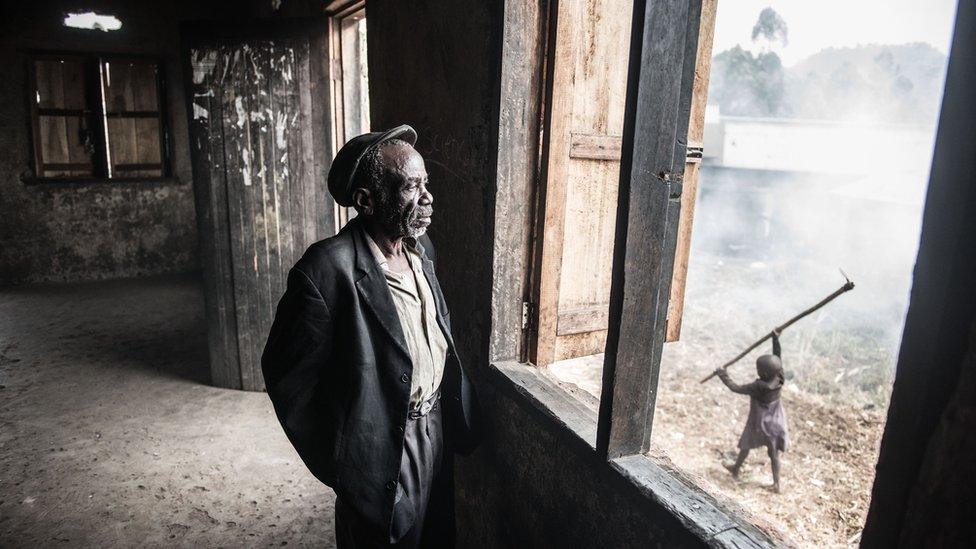
Mahuk Isaac, seen here in a church in Kisoro town, has lost five of his seven children since being evicted from a nearby forest.
He adds that land alone would not resolve the Batwa's problems, as they have little experience of cultivation or rearing livestock.
"We are trying to provide alternative livelihoods. Even if you settle them they still think they should be living in the forest," he says.
In the 1930s the British colonial government declared vast swathes of the south-west to be forest reserves, forcing out some of the Batwa there and then.
Others managed to avoid eviction until 1991 when Uganda's President Yoweri Museveni with support from the World Bank, officially gazetted the land into a series of national parks.
'We were afraid of the guns'
Ninety-five-year-old Mahuk Isaac remembers the day it happened as if it were yesterday. He was hunting in the Bwindi forest when the armed men arrived and told his family they had to leave.
"We could not imagine any other life," he says, sitting hunched over on a wooden bench in a dirt-encrusted suit many times his size.
"But we could not argue. We were afraid of the guns."
Mr Isaac's family collected some personal items; spears, bows, cooking pots, animal skins and pets and walked out of the forest for the last time.
In the following years five of his seven children died of disease. There are few reliable recent statistics, but a survey in 2000 found the life expectancy of the Batwa to be just 28, with almost 40% dying before the age of five.
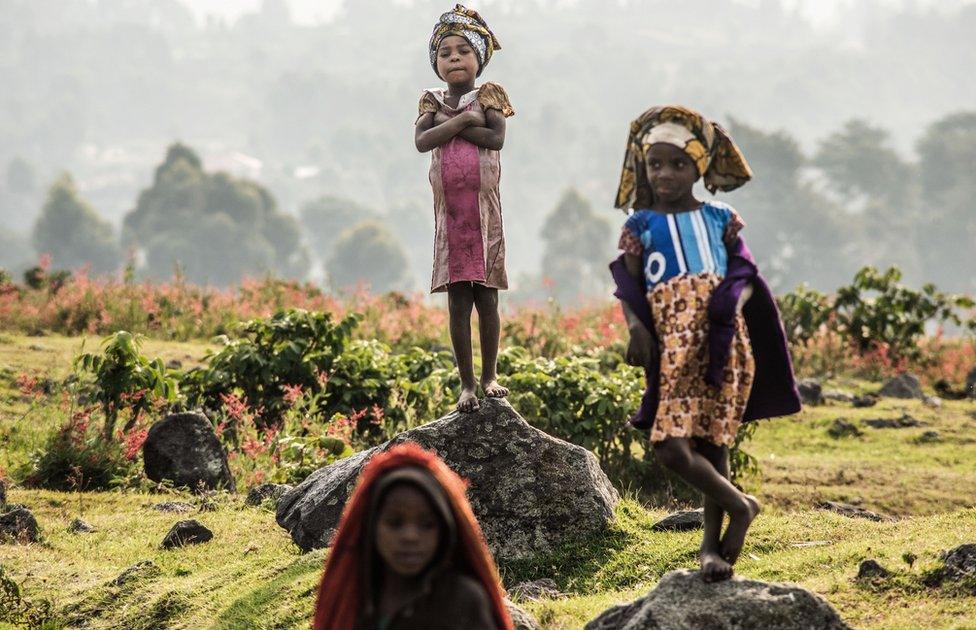
The Batwa want financial help to make sure that the children are educated
It is not the poverty that angers Mr Isaac, it is the humiliation of being dependent on others for everything. "In the forest what we had was ours," he says.
"We are not happy here. Our survival depends on begging and working for others."
The Batwa feel they should be entitled to a cut of the country's lucrative mountain gorilla tourism industry, which earns up to $34m (£26m) each year, according to the International Gorilla Conservation Program.
According to Mr Muhangi from the wildlife authority, from each $600 fee paid by a tourist for a gorilla trek, $8 is allocated to local communities but nothing goes directly to the Batwa.
"If we had even a small part it would help with my childrens' education," says 22-year-old Robert Kaaben, who searches for food in garbage piles to supplement the little he earns from his hairdressing work.
"But the government cares more about animals than it does about us."